The creator talks to Alice Audley about mental health, appearing on TV, and why she thinks the influencer industry is a posh person’s game…
Photography: Alexandra Cameron | Beauty: Kate Pope

Lorna Andrews, 37, known online as Lorna Luxe, is sitting cross-legged on a bed in a very colourful room, in a very eccentric house, in Tower Hamlets, London. Among other paraphernalia, the place has a suit of armour, a hot tub – in the kitchen (!), and a ceramic panther donning a diamanté choker necklace. It’s a far cry from Lorna’s minimalist, black and white, style. But hey, we like pushing people out of their comfort zone here at Blogosphere.
We’ve had an incredibly long day shooting; multiple make-up changes, multiple hair changes, multiple outfit changes, but Lorna is still full of energy and suggesting to her husband, John, better known as Mr Luxe, that they should go out for supper once we properly wrap, before they drive another three-odd hours back to their home in West Sussex.
“I don’t really switch off,” she admits. “I’m a workaholic. My daily screen-time is usually around 16 hours. I am permanently on my phone. I sleep, like, four or five hours a night.”
Does she think that this is healthy?
“No. It’s a completely irresponsible way to do business. It’s not sustainable. None of the behaviours that I practise at the minute are healthy.”

That is the thing about Lorna, and one of the reasons she connects so well to her audience of more than 900,000, she tells it how it is.
“I wouldn’t advise people to work like this. I know it’s unhealthy, but the reality is that I don’t take my own advice. I am just somebody who is in the midst of creating something that I’ve never done before and am managing as best I can.”
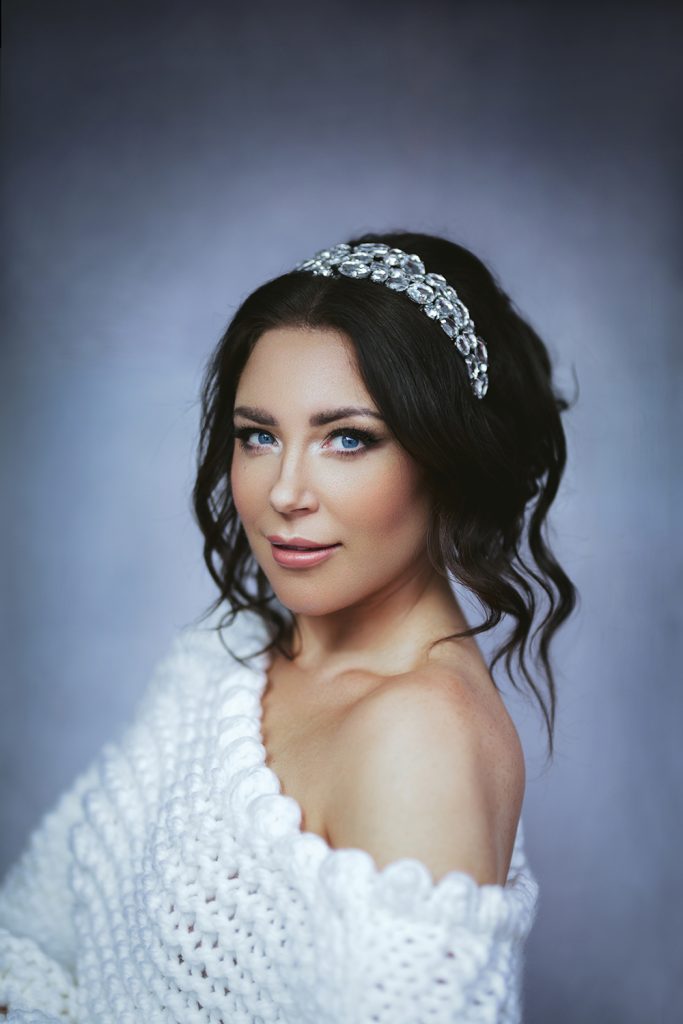
Born in Manchester, and brought up by her mother (her father left them when she was four years old) and grandparents, in a loving but not overtly affluent environment, Lorna was encouraged by her mother to explore and travel (as she had done) as soon as she was able to. Lorna went to university, where she studied English and Music, and then landed a job at Virgin Atlantic as a member of the cabin crew. She worked with the airline for eight years, travelling all over the world, which was an “amazing opportunity”, but at the same time she was also struggling with an increasingly severe eating disorder. An illness that eventually led to her losing her job.
“I had my job taken away from me because of my illness. They gave me five months off, and they would have supported me to the hill, but they then wanted me to work on the ground, and I was like – in my head – ‘I’m a glamorous air stewardess’. It all came crashing down and I was devastated.”
What followed was a period where Lorna had to “confront a lot of demons and lost a lot of friends”. “I didn’t really socialise,” she remembers. “I lived in Brighton at the time – a party town – so if you didn’t go out, you didn’t really exist. I remember thinking, ‘Oh, there’s nothing for me now. There’s nothing really much that I can bring to the party anymore. I’m kind of a shell of what I was.’ I mean, I really was a mess in terms of my mental health.”
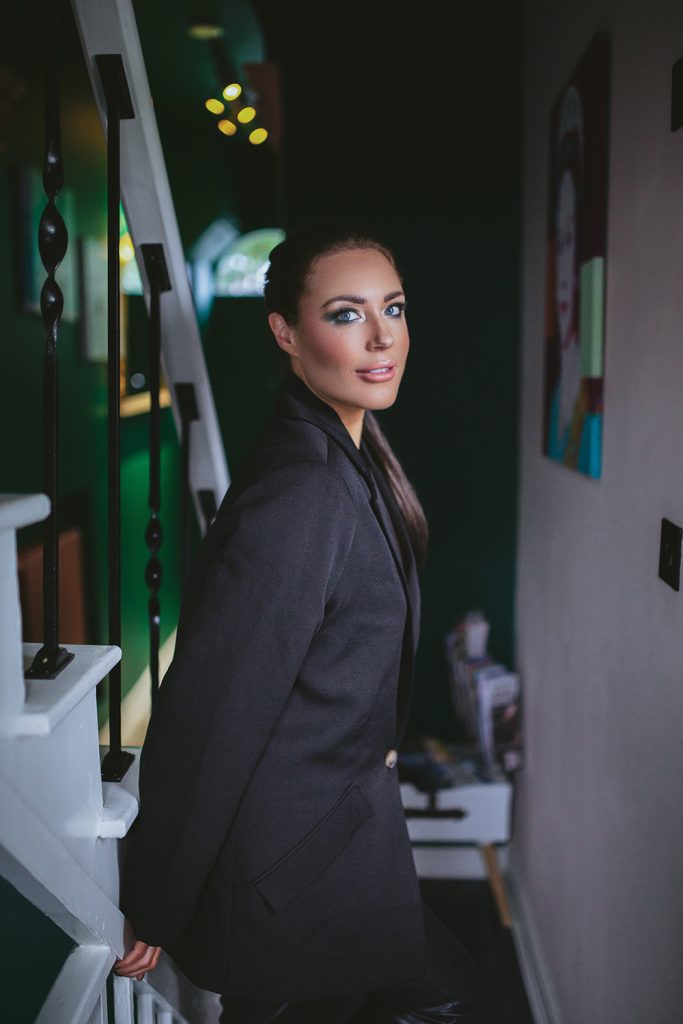
It was from this period of intense loneliness and isolation that Lorna discovered the power of the world of social media. What started as an Instagram profile to hold herself accountable in her recovery – she took a selfie every day to see how she was progressing – led to a way to socialise.
“I’m a chatty person but wasn’t going out and socialising,” she says, “so when social media came into my life, I was like ‘great, I don’t even have to meet these people. I can just chat away all day and all night.’ Some of them lived in other countries so they were awake when I was meant to be asleep – so I would just sit chatting. I suppose what with Instagram being built on engagement, I was contributing a lot of engagement. And so it was very easy to grow.”
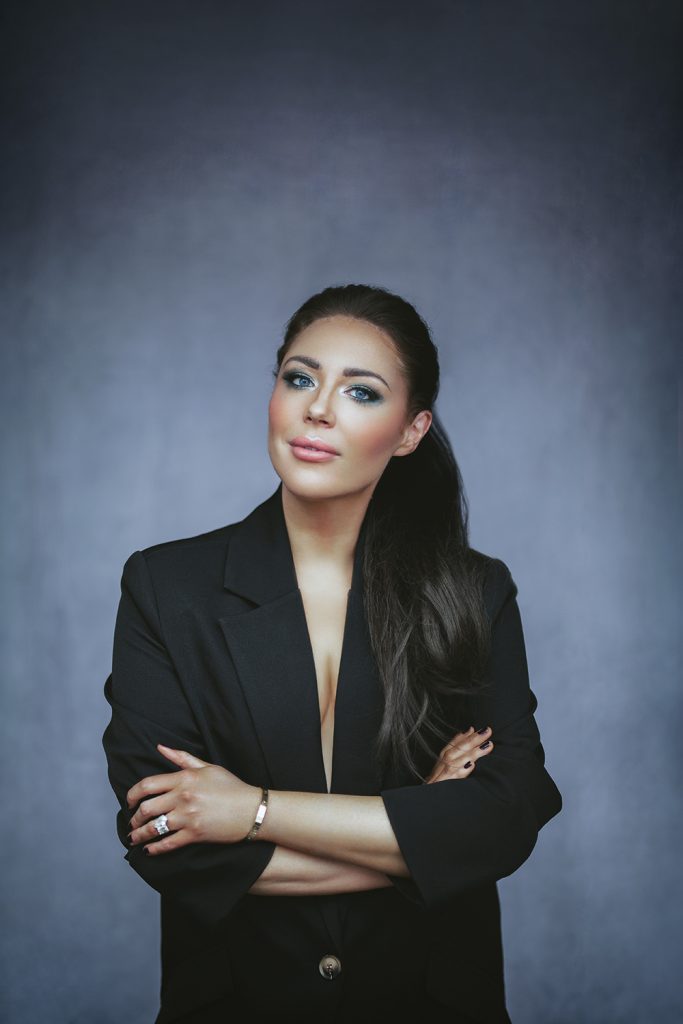
The hit 100,000 followers in 2015 (a year after starting to post consistently), and soon was being invited to events and meeting fellow influencers and PRs.
“I hadn’t been out in months, if not years. But I quickly came out of my shell because I had life experience. I wasn’t 21 not knowing what I was doing, I was 32/33. Of course, most PRs at that time didn’t really understand it [being an influencer], and I didn’t really understand it – so we were all in the same boat; all navigating through this strange thing that had happened.”
It was through meeting other creators at events that Lorna started to realise that being an influencer could be a career.
“I spent a good year slowly meeting people and getting to know other influencers. They would talk about how much they were earning and what they were doing – and I was just a sponge. I just paid attention and kept going.
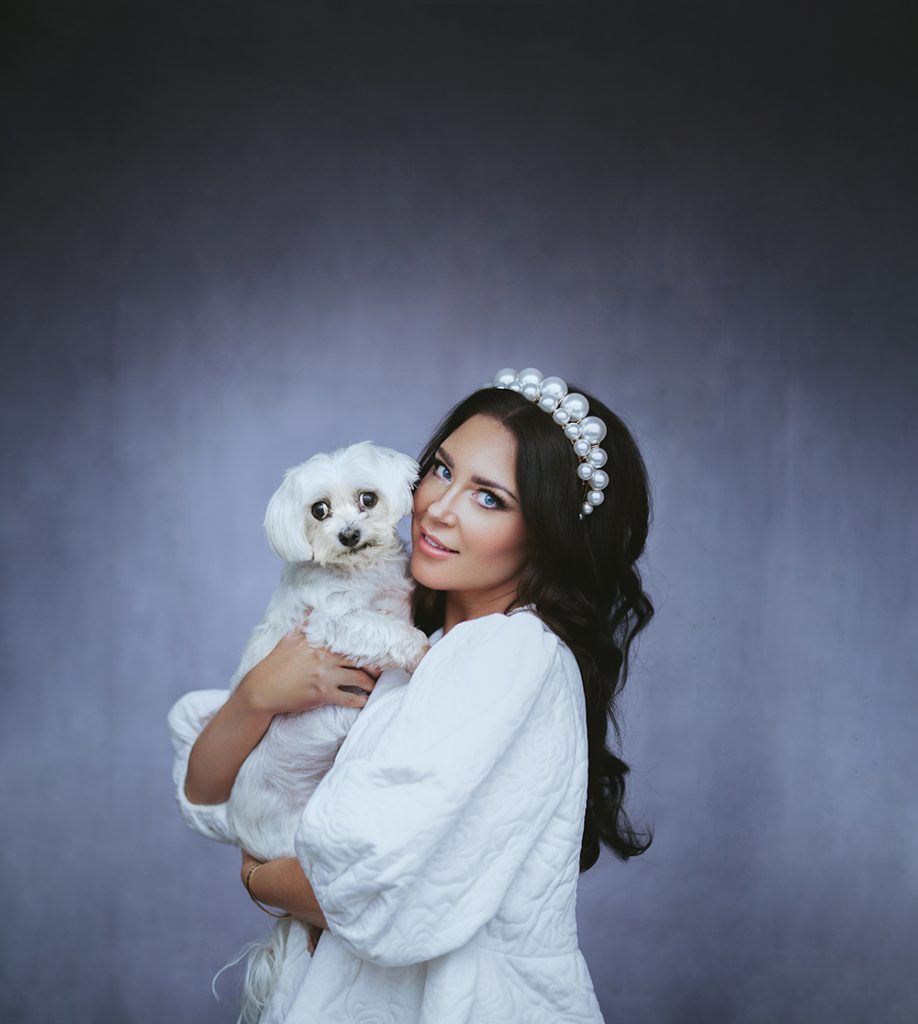
“The fact that people were going to pay me, I couldn’t believe it. I thought for a long time people were fibbing and saying that they were being paid for things that they actually weren’t.”
Fast forward to 2019, and the statistics around working with an influencer like Lorna – and why they should be paid – speak for themselves. Lorna’s summer fashion collection with In The Style brought in £62,000 in the first hour of it being on sale, and just under £300,000 in its first week.
Lorna’s collaboration was also featured by the BBC in their series on In The Style called Breaking Fashion. Though, on the whole, the reaction to the series was positive, it attracted some negativity too. “They [the BBC] weren’t trying to sensationalise, but I think there was definitely an edit there that was to try and trigger people’s reactions to certain things.
“I think if you’re going to critique the documentary, you really do have to watch all six episodes. Quite often people tend to watch the first one and then I’ll get embroiled in some Twitter barrage, and I kind of want to say ‘watch all six’ because a lot of the answers appear quite late in the series.
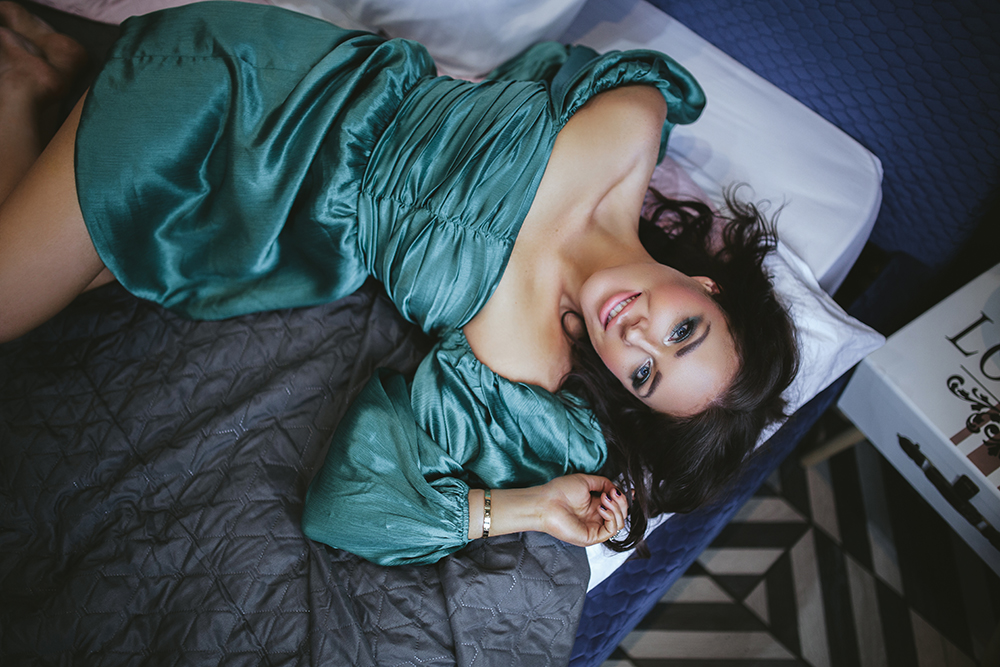
“A lot of the questions were around how they manage to sustain themselves? Where do they buy their products from? “I don’t think I realised the stages of where my clothes come from – and not just from things I make, but from Louis Vuitton and big brand houses. I’m going to be looking to do more self-work on it, not publicly, but just to educate myself as an adult who wants to know more.”
Lorna doesn’t mind being asked questions, but feels like Twitter can be a very angry and defensive place.
“I usually get challenged on subjects that I don’t have enough information about, so I can’t offer an educated response in 280 characters. I usually tend to acknowledge and then thank them for raising awareness to what I obviously didn’t know about. I’m not ever going to be a great Tweeter, I just don’t have it in me.”
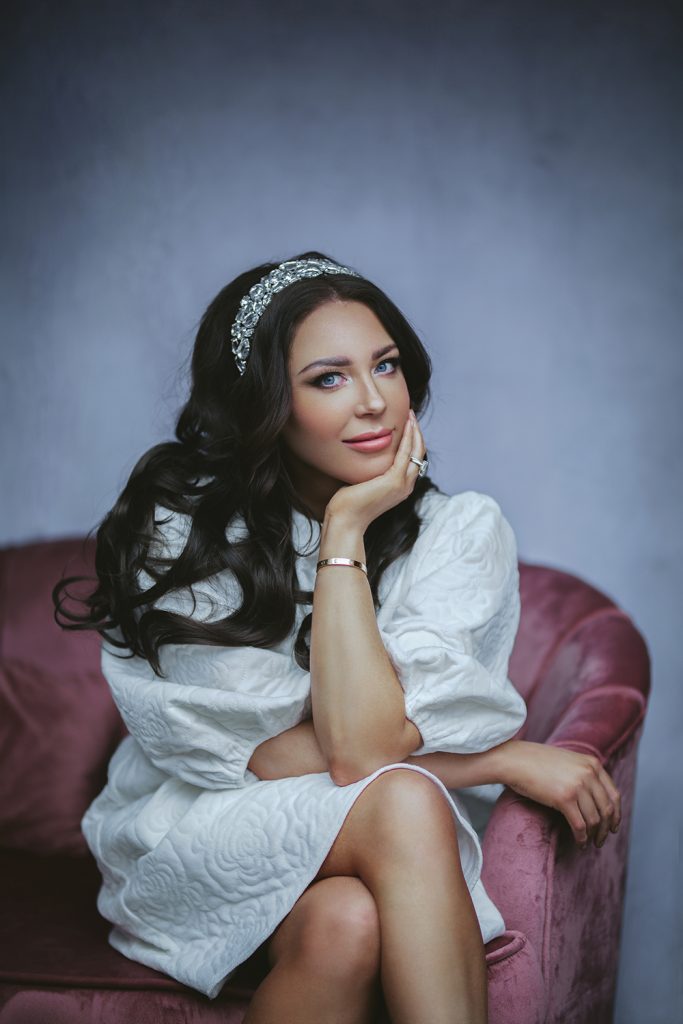
Asking questions is different to being offensive, and Lorna has no time for the latter.
“If anyone sends me anything that I feel is offensive I block it, I have a zero tolerance policy on that. I was sent a link to a thread on a forum about me quite recently. I knew it would be quite triggering, so I asked John to read it for me, and now we have my management [Whalar Stars] monitor it – because if someone is going to put my name and address online then that’s a problem for me. In terms of, you know, someone wanting to say I’m a really horrible person, their opinion of me is none of my business and the reality is that the people that I want to know who I am, know who I am.

“In my experience, the people who get the most trolled or the most horrible comments, are actually doing great things. They’re very successful.”
Her own success is something that Lorna is coming to terms with, and she and husband John – or Team Luxe – are very analytical. They sit down most evenings and discuss how her account is going, how it’s growing, which posts are doing well, and how the analytics have changed compared to the previous year, and where they’re heading.
“John always calls it ‘getting to the next level’, which I know must wind my management up because they must have heard – ‘when is Lorna getting to the next level?’ a zillion times,” she says. “I remember one of my managers saying ‘what is the next level to you, Lorna? You tell us, so that we can help you.’ It was one of those Jerry Maguire moments and I was like ‘I don’t really know’. I just keep going, I’m like a little hamster on a treadmill.”
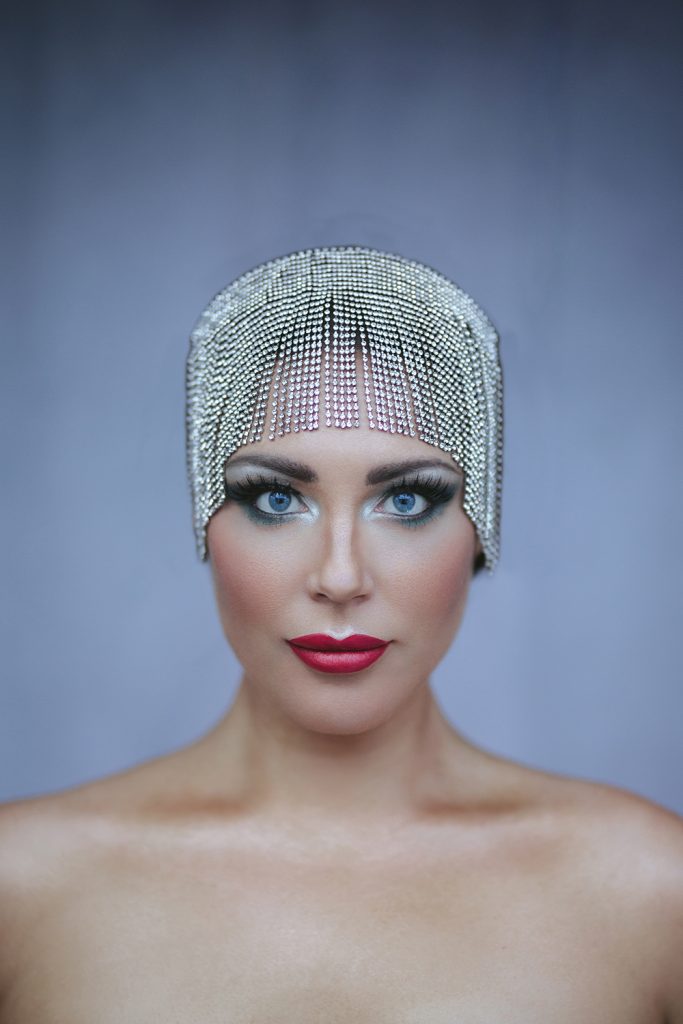

Lorna does attribute part of her success to the financial support she had from her husband when she was starting out. “The reality is that I’m in the position I’m in now because my husband was able to allow me not to work and put 150% into this; I could take photographs every day, I had a really nice camera, I had the luxury of sitting in nice restaurants and travelling. All of the things that make content rich and make it go viral involve money.
“When I see people who don’t have all of that and are still growing great, I’m like ‘Wow, these people need to be given support’ because they’re the real heroes, aren’t they?
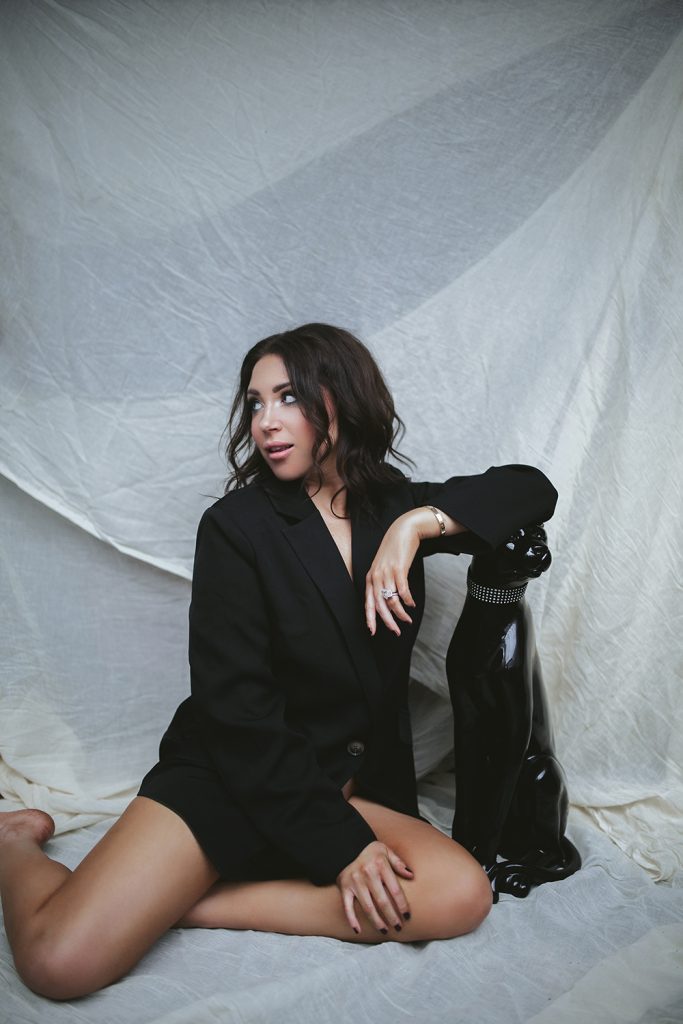
“The reality is that there is talent across the board, and yes that will always win, but the rate in which that happens is definitely determined by their social standing. I do sometimes feel that this is a posh person’s game. Ninety percent of the people I meet doing this job come from very comfortable beginnings. So when you do see people from less privileged backgrounds coming up and doing well, I feel like it’s up to people like me to champion them and push them up.
“One thing I would love to see in the next couple of years is for us to have some kind of union where we could all pay a contribution of our earnings to support people who are emerging – like emerging talent in the same way that the music industry does.”
As for her predictions for the industry over the next couple of years?
“I think we’ll see businesses entrust influencers/creators to go out and deliver content without the need to micromanage it.
“I also hope that we’ll see the crème de la crème of influencers cut away from what I call the ‘bottom feeders’, who are doing whatever they’re doing with buying their ‘likes’. I’m hopeful in a lot of ways that the creators that are bringing a lot of value will bring even more value – and will become more valuable. And hopefully I’ll be involved in that and see a reward from it. But nobody really knows at the moment, we’re all kind of hedging our bets, aren’t we?”
